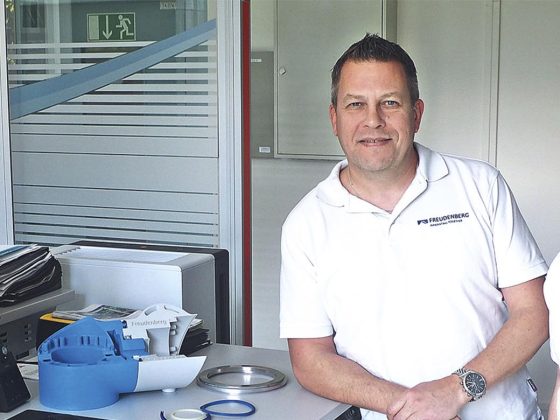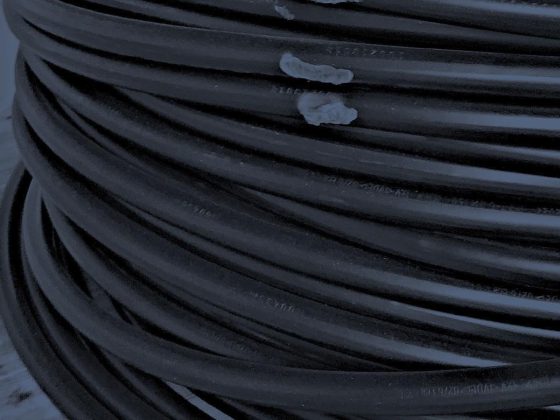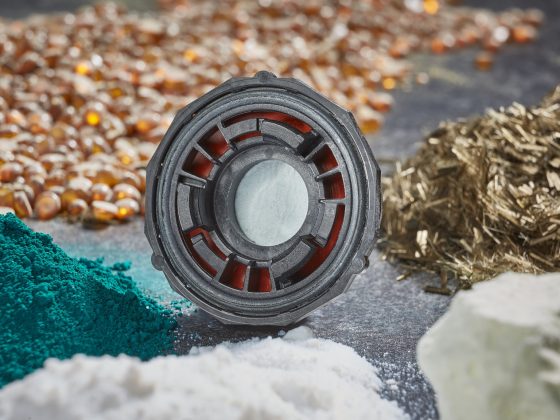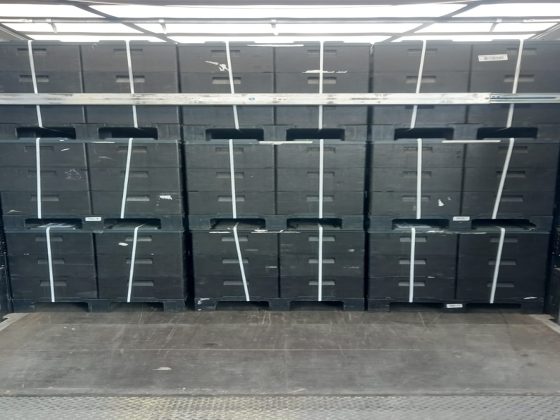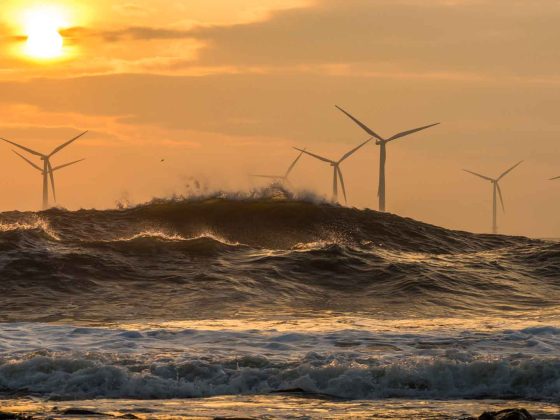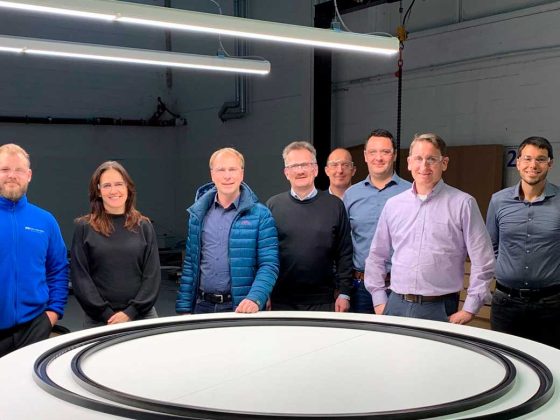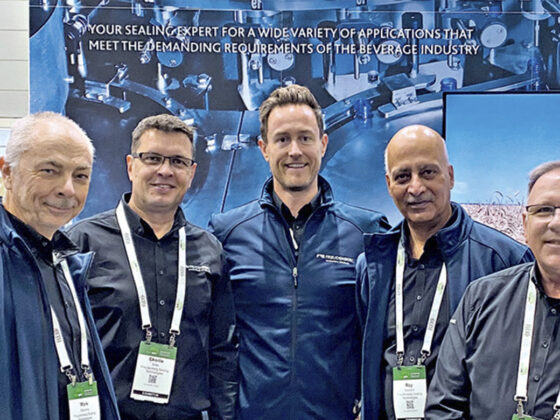Freudenberg-NOK India is building a new plant in northern India. Sustainability and energy efficiency are key factors in the planning, and the Chennai plant is providing vivid instruction on what to do.
Freudenberg Sealing Technologies (FST) has built the concepts of sustainability and continuous improvement into the organization of Lean/GROWTTH & Sustainability, a corporate lead function. Building on the notion that “waste is waste,” resources, time and energy are being saved and maximized. Sustainability Coordinator Lea Harmening explained the “how and why” of the mission:
“We can have sustainability factors flow into any optimization process. We are cooperating with all the sites to reduce CO2 emissions step-by-step and, in the end, we will achieve the CO2 neutrality that we are pursuing.”
Harmening is one of five sustainability coordinators who are dedicated to this comprehensive effort. In the course of their work, the team looks after new facilities, rolling into action long before the first footings are in place. That is certainly the case in Morinda in northern India. At the site, Freudenberg-NOK India (FNI) – a joint venture with FST’s Japanese partner NOK – plans to construct a new production facility. It is due to begin operation in May 2024 and replace existing activities in Basma.

Photovoltaics on the roof
As it moves ahead with the construction project, FNI can profit from the experience of another project in its homeland. It was just a few years ago that the company opened a new plant in Chennai, the center of India’s vehicle industry, setting new benchmarks for sustainability. For example, the facility is producing green electricity on its own with its 1,000 kilowatt photovoltaic system. No other system in the Freudenberg world is as productive – it covers up to 30 percent of the electricity needed on-site. That is no small wonder: In Chennai, the sun shines more than 3,300 hours a year.
The outside temperatures are high in this humid, tropical climate. They sometimes reach more than 40 °C (104 °F). With these conditions in mind, the building in Chennai is fully insulated and air-conditioned to create a tolerable work environment for employees. “The cooling system is the greatest user of the photovoltaic output,” explained Sustainability Coordinator Karl Ludwig Stein. Even here, the facility is betting on efficiency with the use of energy recovery systems. The exhaust air from the building is used to cool the hot external air before it comes in. Another highlight at Chennai: An in-house sewage treatment plant that treats all the wastewater and re-feeds it nearly completely back into the network.
In Morinda, FNI is continuing down the path blazed in Chennai. In northern India, not far from the Himalayas, the climatic conditions are more favorable. At least the temperature falls at night, which diminishes the overall cooling and energy needs. A number of features are standard there: A photovoltaic system on the entire available roof surface, a fully insulated building, and air conditioning on the shop floor.

Energy monitoring for transparency and efficiency
Seamless energy monitoring is also standard for Morinda and FST’s other new facilities. It creates transparency in multiple ways. For one thing, it is immediately clear when the use of electricity, water or compressed air gets out of hand. What is causing an excessive base load over a weekend or overnight? How can peak loads be avoided? Monitoring provides the data you need if you want to identify opportunities to optimize your processes. It allows you to introduce improvements promoting energy efficiency. At the same time, the data make it possible for FST to provide customers with base information on parts at some point in the future, for example, regarding CO2 emissions per part. “These kinds of requests have been rapidly increasing recently, and not just from the auto industry,” Harmening said.
In Morinda, two technical features stand out: exhaust air cleaning for the coatings area and the heating system for the phosphating installations. “Due to their high efficiency, it is significantly more efficient to produce heat electrically with a heating pump instead of using fossil fuels,” said Sustainability Coordinator Stefan Wernz. For example, more and more homeowners are turning to the technology for their homes. But this is not the normal practice for industrial processes with high temperature requirements of 95 °C (203 °F) like the phosphating facilities. This is where high temperature heating pumps come in. FST is planning to deploy them at the phosphating installations in the new plant – a first for the company. “We are also using the waste heat from the air-conditioning system to feed the heating pumps,” Wernz added.
Microorganisms as exhaust air purifier
The biological exhaust air purifier system for the coating processes is both energyefficient and environmentally sound. Stein offers a vivid explanation for the layperson on how this is already functioning at other plants in Europe. “The exhaust air is practically blown through a compost pile. The microorganisms inside do the cleaning and then metabolize the solvent’s hydrocarbons into water and CO2. In this way, no additional heating medium is required, and no gas is burned to clean the exhaust.” A decision has not yet been made on the use of another option: A wet scrubber could be used. A wet scrubber uses water to remove pollutants. The waste water is then purified in the plant’s sewage treatment plant – biologically, of course. FST wants to close the book on conventional regenerative thermal oxidation, or RTO, for exhaust air treatments at its facilities in the future.
Due to time constraints and local conditions, another ecological process does not happen to be a viable option at Morinda: geothermal cooling. Unlike geothermal heating, the ambient temperature underground – it tends to be relatively low – is used to cool facilities and processes, not to warm them. FST has turned to the technology at its site in Necedah, Wisconsin.
“The impression from our visit on-site is that the motivation and the commitment for energy-efficient solutions is very high in India,” Stein and Wernz agreed. Their colleague, Harmening, confirms this. In an online session with a wide-ranging group of trainees from India, she addressed Freudenberg’s sustainability concept and discussed its potential for savings. “Employees in India are proactive when it comes to managing the huge challenge of CO2 neutrality,” she said. She has personally met and shared information with Mallik Santosh Kumar, Head of Lean/GROWTTH in India, creating a good foundation for trust and cooperation.

